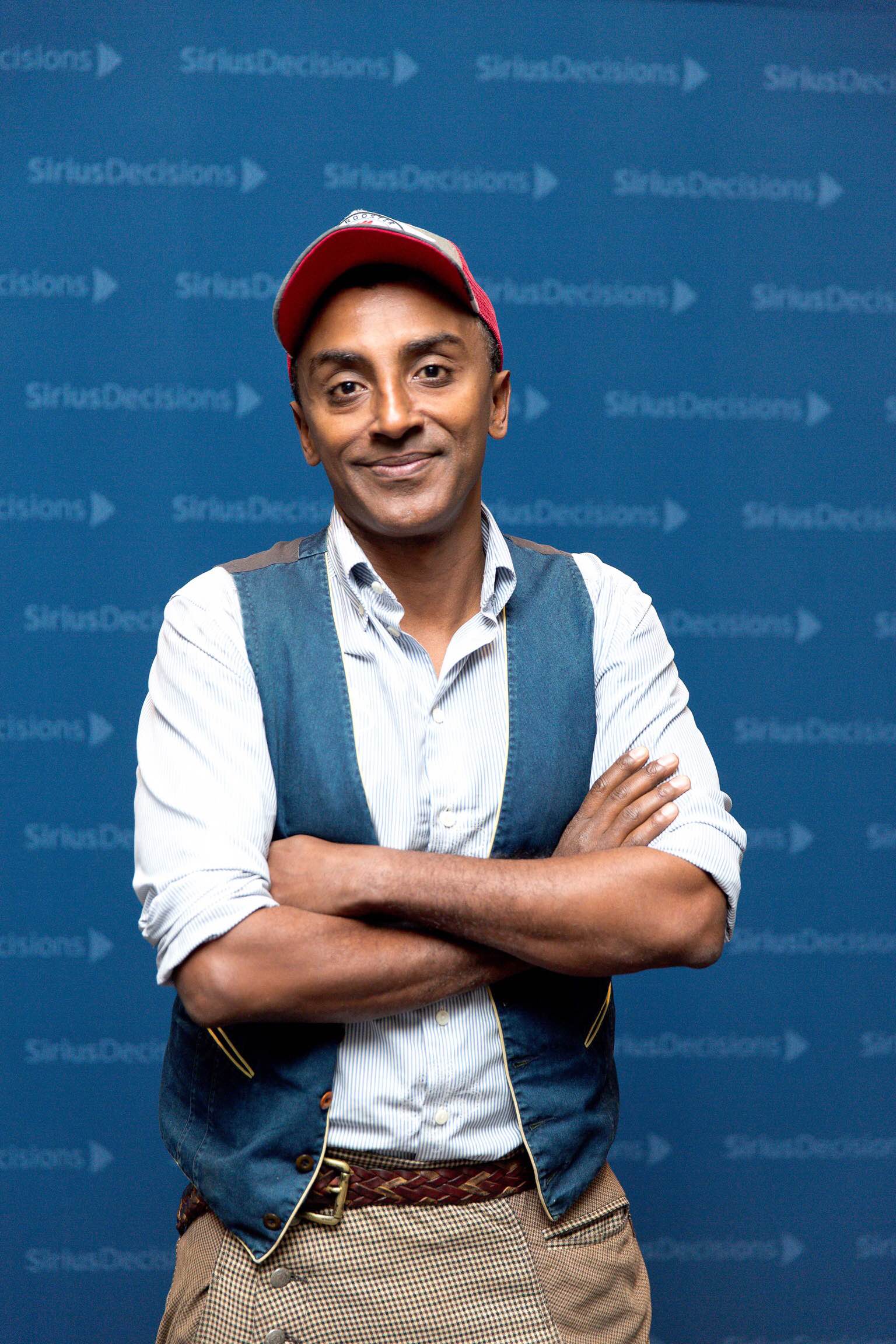SiriusDecisions Summit 2016 Highlights: Marcus Samuelsson’s Secrets of Success
- From holiday dishes to ordinary weeknight dinners, the food we cook and eat tells a story – and can teach us valuable life lessons
- SiriusDecisions’ 2016 Summit keynote speaker Marcus Samuelsson shared stories of his childhood and ascent in the culinary world
- The importance of customer experience resonated with B2B sales, marketing and product executives attending Summit
From grand holiday dishes to ordinary weeknight dinners, the food we cook and eat tells a story – and can teach us valuable life lessons. In an inspirational keynote address to kick off SiriusDecisions’ 2016 Summit, internationally acclaimed chef Marcus Samuelsson shared stories of his childhood and his impressive ascent in the culinary world.
A bestselling author, the owner of 22 restaurants, and a familiar face on popular cooking shows “Top Chef” and “Chopped,” Samuelsson faced early challenges in his life. Born in Ethiopia, he was adopted by a hospital nurse and raised in Sweden after his mother passed away from tuberculosis.
“There are so many people that I represent,” he told the crowd in the packed Delta Ballroom at the Gaylord Opyrland in Nashville. The commonality in all of the disparate cultures and groups of people he lived and worked with as he grew up? Food – and the family traditions that they represent.

Samuelsson credited his uncle with teaching him early lessons on marketing: Through fishing trips, he learned the differences between various types of fish, optimal preparation and presentation techniques, and the best buyers for each fresh catch. Meanwhile, his grandmother instilled in him the competitive drive and cooperative spirit that would later propel him to success on “Top Chef” – and in real-life restaurant kitchens.
“There’s nothing better than executing something together as a team,” Samuelsson said. “That was something I knew I wanted to be a part of, so I fell in love with working in the kitchen.” After dozens of rejections from Michelin-starred restaurants, he eventually landed in New York to cook alongside French masters. Through travels to Japan and other locations around the world, he honed his abilities to communicate and improve his cooking techniques despite language barriers, and he learned to further appreciate the nuances of world cultures.
While the hard work ultimately paid off, Samuelsson acknowledged that he also partially owed his big break to some unusual circumstances. At the age of 23, he was working under a successful chef in New York who died unexpectedly. Feeling unprepared to inherit such a massive undertaking, he volunteered simply to keep the restaurant afloat until it could hire a replacement chef. Under his leadership, however, the restaurant was reviewed and went from one Michelin star to three – and suddenly Samuelsson was the youngest three-star chef ever in the United States.
“The kindness of others and the randomness of luck have always been very important parts of my journey,” he said.
As his restaurant business expanded and his worldwide recognition grew, Samuelsson remained committed to two key principles: scaling the art of food through recipe capture and standardization, and delivering an amazing customer experience.
“No one goes to a restaurant because they’re hungry – those days are pretty much over,” he pointed out. “People go because they want an experience. If you can’t give an experience that exceeds expectations and is something to talk about at the water cooler or post about on Facebook, then you don’t have a business.”
This message undoubtedly resonated with the B2B sales, marketing and product executives listening to the Summit keynote. While they may sell software instead of spicy chicken, the importance of customer experience remains the same.
Finally, Samuelsson emphasized the importance of connection with the community – another principle that any B2B organization should find relevant. One of his best-known restaurants, Red Rooster Harlem, uses its cuisine to express the culture of New York’s Harlem. The restaurant also hires three-quarters of its staff from the neighborhood, then sends many employees on life-changing stints at Samuelsson’s other restaurants around the world.
“Through Red Rooster, I have been able to articulate my dream and vision about the local community and what the word ‘restaurant’ truly means,” Samuelsson said. “It means to restore your community. Our job is to tell stories about our community through hospitality.”